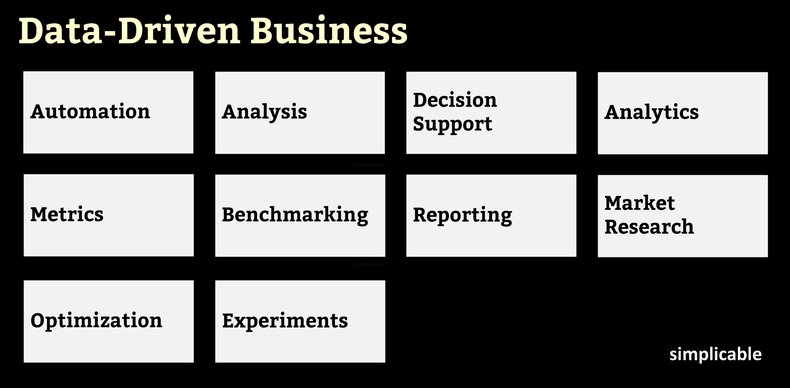

Automation
The use of data to automate work such as business processes. For example, sales data can be used to automatically order inventory.Analysis
Business analysis typically relies on data to produce strategies, requirements and plans. For example, a business analyst might use customer surveys to develop a business case to remove an unpopular product feature.Decision Support
Applications that provide employees with the data they require to make decisions. For example, a salesperson might prioritize their efforts by looking at customer data in a CRM.Analytics
Tools for exploring data to find useful patterns. For example, a business analytics tool that allows a marketing team to look at price versus sales data by demographic and product.Metrics
Metrics are measurements of business performance that are widely used to evaluate and optimize strategy and operations. For example, availability rate is commonly used to manage the reliability of services.Benchmarking
Benchmarking is the process of comparing your results to a competitor, industry or standard.Reporting
The process of reporting data such as metrics or status on a regular basis. Considered a basic type of internal control.Market Research
The process of acquiring more data. Common in areas such as branding and product development that requires an understanding of customer needs, perceptions and the competition.Optimization
Using data as an optimization tool in areas such as marketing and operations. For example, a manufacturer may examine manufacturing control data to identify bottlenecks on a production line.Experiments
The process of experimenting to generate data. For example, a retailer may try different types of coupons at different locations to compare results.| Overview: Data-Driven Business | ||
Type | ||
Definition | The use of data to improve strategy, planning and operations. | |
Related Concepts | Business MetricsBusiness ExperimentsBusiness OptimizationAnalyticsMarket Research | |




























